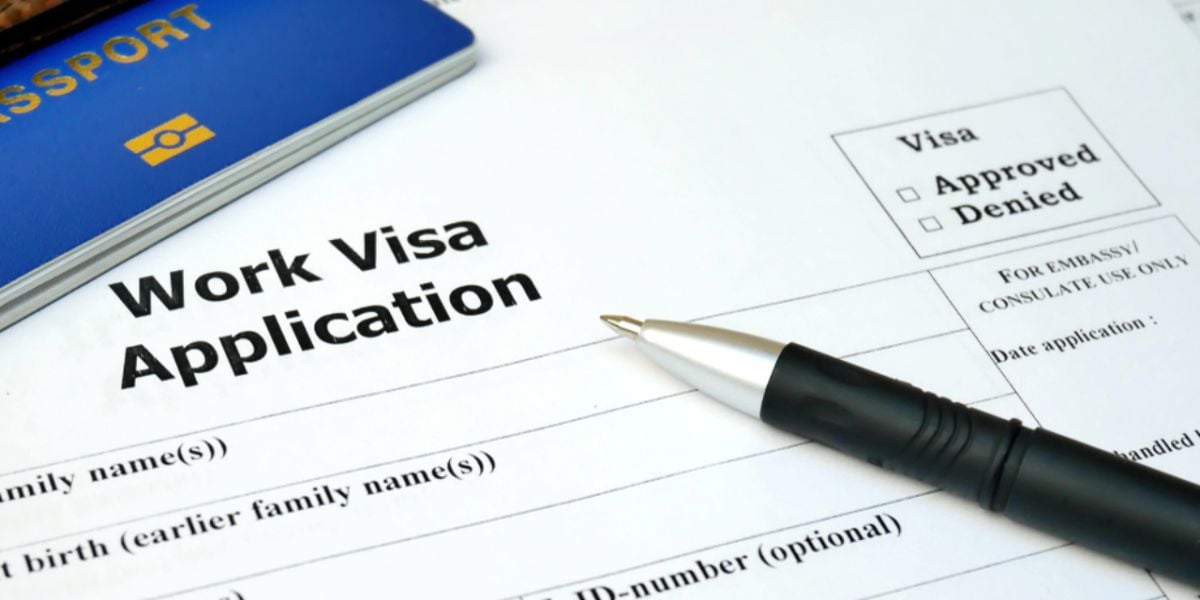
This article offers an overview of the legal aspects of working in Portugal. Find out if you need a work visa, a work permit, how to apply for residency to work in Portugal, and more.
Do you need a visa or work permit to work in Portugal?
EU/EEA nationals
If you are a citizen of an EU/EEA member state, you can travel, live and work in Portugal without a visa or a work permit. However, if you plan to stay in the country for a period longer than 3 months and shorter than 5 years, you will need to apply for a Registration Certificate. This is the document that serves as a residency permit for EU/EEA nationals staying in Portugal. You can apply for this certificate at your local city council. Typically, these are the required documents:
1 - A valid form of ID (passport, travel ID, etc.);
2 - Written declaration of commitment in which the applicant claims one of the following:
- They work for a Portugal-based company or are self-employed.
- They have health insurance and sufficient funds to support themselves and their family throughout their stay;
- They study in a public or private education institution in Portugal and have sufficient funds to support themselves and their family throughout their stay;
- They are moving into the country to reunite with a family member who abides by one of the aforementioned clauses (in this case, you'll need a document that proves you're both related).
Non EU/EEA nationals
On the other hand, if you are a non-EU national, you will need to get both a visa and a residence permit to live and work in Portugal. In most cases, in order to apply for a work visa (D1) in Portugal, you will need to first secure a job offer in the country. You can also apply for a work visa if you are married to a Portuguese citizen. After you've secured your visa, you will need to apply for a residence permit within 120 days.
Keep in mind, this only applies to people planning on staying in Portugal for the long term (at least over 1 year). If that's not your case and your work contract is only good for less than 12 months, then you need to get a temporary work visa.
How to apply for a work visa (D1) in Portugal?
If you are a non-EU national, the first thing you will need to do to apply for a work visa is secure a job offer.
Once you have found a job, your employer will need to contact the Labour Department and apply for a work permit for you. When you've secured the work permit, you will need to apply for a work visa and a residence permit based on your employment:
- If you need a visa to enter Portugal and plan to stay in the country for less than 12 months, you will need to apply for a temporary work visa (NOT D1);
- If you plan to stay in Portugal for the long term, you will need to apply for a regular work visa (D1) and a residence permit.
Non-EU nationals will need to contact Portuguese embassies or consulates back home to apply for a work visa (D1) prior to their travels. Alternatively, they may also rely on the e-visa portal or apply through third-party VFS Global. In most cases, you will be asked to submit the following documents:
- Work visa application form;
- Passport and previous visa copies;
- Passport-sized photos;
- Proof that the applicant has the required qualifications to work in their field in Portugal (in cases where local legislation requires it, such as teachers, lawyers, etc.)
- Health insurance to cover your stay;
- Proof of accommodation and flights;
- Employment contract.
You can start the process once your Portuguese employer's application for your work permit has been approved. Typically, it can take anywhere from 60 to 120 days to get a response from consular services. The visa fee is currently set at €110,00.
As mentioned above, nationals of EU/EFTA countries planning to work in Portugal for more than three months will only need a Residence Certificate. They can apply for it at their local city council.
How to apply for a residence permit in Portugal?
Additionally, if you're a non-EU national and will be staying in the country for over 1 year, it is mandatory to apply for a residence permit within 120 days after your work visa is issued. In order to do so, you'll have to book an appointment at your nearest AIMA office. The Agência para a Integração, Migrações e Asilo (AIMA) was created in late 2023 as the entity responsible for managing migration processes in Portugal.
In order to complete your application, you will need to provide the following documents:
- Passport with a valid work visa (D1);
- Proof of address;
- Work contract or official registration as a freelancer (obtained through Portal das Finanças);
- Proof of enrollment in the Social Security System (Segurança Social);
- Proof that the applicant has sufficient funds to support their stay in Portugal;
- Updated criminal record.
For those applying for a residence permit, the cost breakdown can be quite confusing at first, since every step of the process comes at a different cost. That being said, national authorities charge 127.20€ for receiving and analyzing applications, plus 109.30€ for issuing temporary residence permits. Officially, AIMA will have to review your request and issue your residency card within 90 days.
The temporary permit is valid for 2 years, and can be renewed for another 3 years. When you renew your temporary residence permit, you'll need to pay the same fees all over again. After spending 5 years in the country, you can apply for permanent residency (in that case, the issuance fee is 336,10€. After 10 years, it is possible to apply for Portuguese citizenship.
Types of work visas in Portugal
The type of work visa you need depends on your nationality and the potential length of your employment. Here are the most common types of Portuguese work visas:
Job search visa
This visa allows individuals to enter and stay in the country while searching for employment opportunities. Holders can work until the visa expires or until they receive a residence permit. Initially granted for 120 days, it can be extended for an additional 60 days, and it's single-entry. For those wishing to extend their visa after 120 days, they will need to provide proof of enrollment in the IEFP (Employment Institute in Portugal). If the applicant doesn't have a proper work contract after 120 (or 180) days, they will have to leave the country and will only be able to reapply for another job-search visa after 1 year. On the other hand, if the applicant finds a job within this timeframe, they will need to apply for a residency permit in order to stay in the country.
In order to apply for a job search visa, you'll need to show the following documents:
- Visa application form;
- Valid passport for at least 3 months from the intended date of departure;
- 2 passport-sized photos;
- Health insurance for the duration of the visa;
- Criminal record;
- Return tickets;
- Proof of sufficient funds for your stay (equivalent to at least 3 Portuguese minimum wages)
Alternatively, a Portuguese national or a foreign passport-holder with a valid Portuguese residence permit can sign off a declaration of acceptance of liability, meaning they will be officially responsible for covering food and accommodation costs for the applicant. Also, in case the applicant overstays their visa and need to be deported, this person will need to cover the repatriation costs.
The current administration has created legislation to restrict the job search visa to highly qualified individuals, effectively barring most immigrants from relying on this permission. These new rules are expected to come into effect before the end of 2025.
Seasonal work visa
A visa for applicants who are staying in the country for less than 90 days for seasonal work. It is very popular in fields such as agriculture and tourism.
Digital nomad visa
This visa allows holders to remain in Portugal for up to 1 year while working remotely for a company based outside the country. Applicants need to present a freelance contract with a company not based in Portugal, as well as proof of all the income generated over the 3 months previous to the application. Please keep in mind that, in order to get the visa, your average monthly income must be at least 4 times the official minimum wage in the country (3,480€).
Highly qualified activity visa / Teaching visa / Investigation visa
This is a temporary residency visa for individuals engaged in scientific research at research centers, teaching positions in higher education institutions, or highly skilled work for durations of less than one year.
Long-term work visa (D1)
As mentioned above, if you intend to work in Portugal for longer than six months, you will need to apply for a long-term visa (D1). If you are a citizen of Canada, Australia, Japan, New Zealand, Israel or the US, you will be able to apply for a long-term work visa from Portugal within 90 days of arrival (thanks to the agreements that Portugal has with these countries). If you don't come from one of the above countries (or an EU member state), you will need to pay for the visa before arriving in Portugal.
Remember that this visa only allows you to stay in Portugal for 120 days. After that period, and in order to continue working legally in the country, you need to apply for a residence permit.
Amateur sports visa
This visa is intended for applicants wishing to stay in Portugal in order to practice an amateur sport.
Work Transfer Visa
Specifically designed visa for employees who are temporarily moving to Portugal as part of a work transfer. These workers need to have been hired by their company at least 1 year before the transfer. Only applicable to companies hailing from countries that are part of the World Trade Organization.
In order to get this visa, companies or individuals need to apply at their nearest Portuguese embassy or consulate. The following documents are required:
- Filled-out form;
- Passport;
- 2 passport-sized photos;
- Proof of return ticket;
- Valid health insurance for the duration of the stay;
- Criminal record;
- Written permission for AIMA (Portuguese Immigration Agency) to consult the applicant's criminal record in Portugal;
- Proof of accommodation;
- Proof that the applicant has sufficient funds to cover his costs of living in Portugal.
Once you complete your application, a decision will be communicated within 30 days. Currently, the fee for this visa is 75,00€.
Startup visa
The Startup Visa program welcomes foreign entrepreneurs looking to develop projects and grow them into innovative startups, introducing fresh ideas and business models and attracting highly skilled professionals. To apply for the visa, entrepreneurs need to show proof of their intention to invest and create a business in Portugal.
Internship/training/volunteering visa
You can apply for this type of visa if you are involved in professional training, a volunteer program, or an internship in Portugal. To apply for the visa, you will need to provide proof that you will be involved in these activities for a period that exceeds 90 days and is no longer than a year.
Obtaining a Portugal Golden Visa
Non-EU citizens who want to start a business in Portugal may be eligible for the Golden Visa, which is designed to encourage investment in the country. Note that this visa option is only open to third-country nationals who are able to fulfill at least one of the following requirements:
- Creating at least 10 job postings;
- Investing 500.000€ in scientific research activities;
- Investing 250.000€ in arts or in the preservation of local heritage sites;
- Investing 500.000€ in subscription units of mobile investment funds (non-related to the housing sector);
- Investing 500.000€ in creating a local company or supporting an existing one, so as long as the investment leads to the creation or maintenance of at least 5 job positions for a minimum of 3 years.
Buying property in Portugal, on the other hand, used to be a better option for people planning to stay in the country for a long time. While many foreign investors used to buy 500,000€ worth of property in order to get access to the Golden Visa Scheme, allowing them to live legally and permanently in the country after 5 years, the government has suspended the program.
Note that more conditions may apply for receiving this type of visa. This is why it is recommended that you check with your local Portuguese embassy or consulate regarding the most up-to-date Golden Visa application requirements and application procedures.
We do our best to provide accurate and up to date information. However, if you have noticed any inaccuracies in this article, please let us know in the comments section below.








